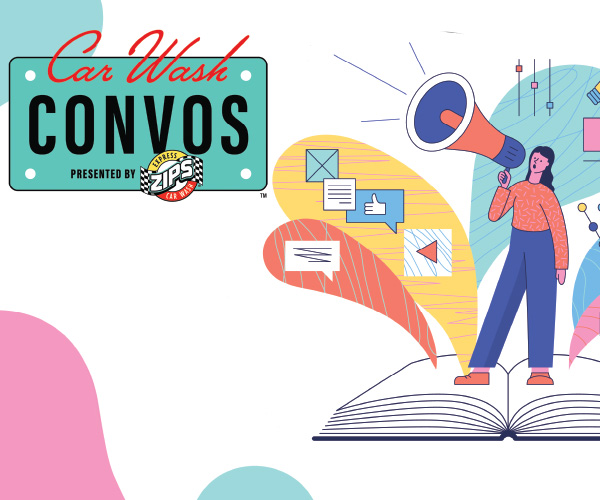
The Evolution of Philanthropy
July 1, 2013
5 minute ReadCorporate charitable contributions dipped during the recession, but they’re on the rise again, according to Maureen O’Brien, communications associate at The Philanthropic Initiative in Boston. In fact, O’Brien said, the emphasis on corporate responsibility has grown over the last decade or so, but the experience of a tight economy has taught businesses to take a more strategic approach to giving.
“For some companies, it used to be the CEO’s pet project,” O’Brien said, “but now it’s really about aligning corporate goals with philanthropic goals. And people are putting pressure on companies a lot more. Customers want to go to companies that do social good, that are focused on the triple bottom line — people, profits and planet — and not just revenue.”
For small businesses with strong commitments to good corporate citizenship but limited resources, a carefully planned philanthropic strategy is essential.
PICKING A CAUSE
Part of that strategy is developing guidelines for which charitable organizations to support. “Often the greatest impact will come from working with groups that have a local presence in the places where your business operates,” said Susan Winer, senior vice president for business development at Strategic Philanthropy Ltd., in Chicago.
Online retailer Christmas Lights, Etc. has extended its outreach beyond its Alpharetta, Ga., headquarters because the business has a national customer base. In 2012, Marketing Director Hillary Zoda implemented a cause marketing program to extend the brand. When Hurricane Sandy hit the Northeast in October 2012, the company’s leaders decided to do something to help. They ran a promotion in which they donated 10 percent of the value of each purchase to the Red Cross when customers opted to give up their discounts for the cause. The project raised $2,000.
“We felt great about it because so many people wanted to help,” Zoda said. “Many people chose to pull the coupon code and donate that 10 percent.”
Christmas Lights, Etc. will do a similar promotion for the Susan G. Komen Foundation during Breast Cancer Awareness Month in October. In another philanthropic project, the company donated trees, lights and ornaments to Treats for the Troops, along with warehouse space for the organization to package the cookies it sends overseas. It also supplied Christmas trees to decorate all 14 fire stations in Georgia’s Forsythe County.
Jason Kos, CEO of FITCO, a fitness equipment manufacturer and fitness center designer based near Dallas, co-founded The Heroes Project in 2011 with U.S. Navy SEAL Chris Kyle. In February Kyle was shot and killed at a Texas gun range by a fellow veteran who suffered from post-traumatic stress disorder (PTSD). The nonprofit organization he and Kos started provides free in-home fitness equipment, personal training and life coaching to disabled veterans — including those with PTSD — and their family members.
Kos, who met Kyle through his brother and a close friend of the Navy hero, said Kyle believed that “if you got your body healthy, your mind would follow.” He also realized that veterans who needed help would be more likely to accept it if the offer came from other veterans. The Heroes Project carries on his idea of having veterans do outreach and refer one another to the program.
FITCO funded the nonprofit for the first six months, but it now operates as a separate entity, Kos said. Today, while the company occasionally gives to other charities, the foundation is the main focus of its philanthropic efforts. FITCO also gives each employee a week of paid time off to pursue their passions, which often involve community service, Kos said.
Like FITCO, eyeglass retailer Coastal.com also chose a philanthropic cause that’s directly related to its line of business. In 2011, the company started the Change the View Project, which donates one pair of eyeglasses to charity for every pair of private label eyeglasses purchased. The project aims to donate 2 million pairs of eyeglasses worldwide by 2020, along with vitamin A and sun protection lenses. So far, more than 300,000 people in the United States, Canada, Mexico, Panama, Honduras, Peru, the Philippines, India, Haiti, Zimbabwe, Kenya, Nigeria and Zambia have received help through the program, according to Aaron Magness, vice president of marketing at Coastal.com.
HOW TO HELP
Small businesses not only are being more strategic about choosing charities, they’re also coming up with more creative ways to help them. Some ask staff volunteers to serve on giving committees that brainstorm ideas, while others turn to outside consulting firms for advice.
“They can also go to their local community foundation and set up a donor-advised fund,” O’Brien said. “That’s a good option that gives you the perks of having a private foundation but without some of the tax and legal burdens that come with running your own foundation.”
Winer, who specializes in consulting with closely held and family owned businesses, said thinking creatively about giving helps companies stay engaged even when funds are limited.
“They can create programs where they encourage employees to volunteer,” Winer said. “They can make a difference through human contributions, not just financial.”
Winer suggests that business owners facing budget constraints have an honest discussion with members of the organizations they’ve been supporting and ask how they might continue to help while decreasing monetary donations for the time being.
O’Brien says it’s important to remember that even small gifts can have a major impact. “You don’t have to be giving away millions of dollars in order to make a difference in your community,” she said.
WHY GET INVOLVED
Corporate philanthropy increases community goodwill, raises employee morale and may even boost the bottom line through tax deductions and greater customer loyalty. Winer said her clients view charitable giving “as a way in which they can demonstrate that they are a committed part of the social fabric of their community.”
“The one thing you should never do is launch a philanthropic initiative in response to a public relations crisis,” Winer said. Unfortunately, many companies try this tactic “because the company is in trouble and they think that if they give a lot of money away, attention will focus on that,” she said, adding it’s a move that usually backfires.
Zoda says her company, Christmas Lights Etc., hopes that other small businesses will follow its example of giving back.
“There are millions of small businesses, and if each one of them did just a little something, it would be amazing,” Zoda said.
Aaron Green, owner of Kwik Car Wash in Parker, Colorado, is a strong proponent of business philanthropy in the car wash industry.
“It’s important that business people get involved in their community,” Green said. “We have a powerful voice, and we can have a lot of influence.”








